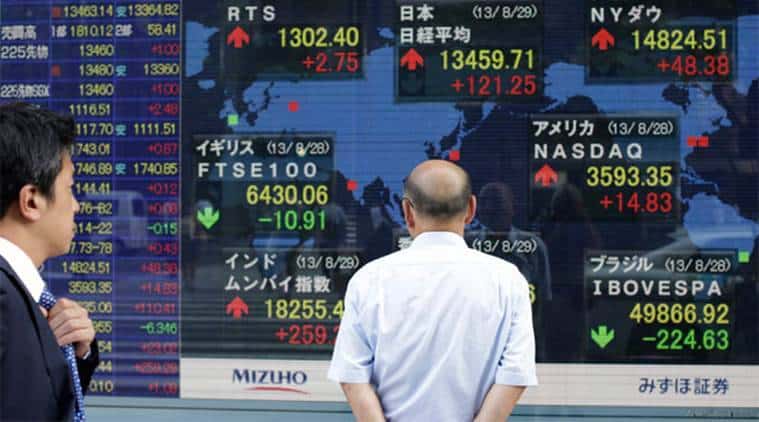SINGAPORE — Asia markets largely slipped in Monday trade, with investors reacting to the release of Chinese economic data, including first-quarter gross domestic product figures.
In Japan, the Nikkei 225 fell 1.5% as shares of Fast Retailing declined nearly 2%. The Topix index shed 1.22%.
Mainland Chinese stocks were also lower, with the Shanghai composite down 0.78% and the Shenzhen component shedding 0.2%.
China saw faster-than-expected GDP growth in the first quarter, data released by the National Bureau of Statistics showed Monday. First-quarter GDP in China rose 4.8%, above expectations for a 4.4% year-over-year increase.
Retail sales in March, however, fell by a more-than-anticipated 3.5% as compared with a year earlier. That was against expectations for a 1.6% fall in a Reuters poll.
The data come as mainland China has for weeks been battling its worst Covid wave in two years. In particular, the major city of Shanghai has been among the areas most affected.
“We know that a big driver of the consumption weakness is the zero-Covid policy,” Johanna Chua, head of Asia economics and strategy at Citi Global Markets Asia, told CNBC’s “Street Signs Asia” on Monday.
“We had President Xi Jinping’s statement in Hainan indicating that persistence is key, so they’re going to stick with this. As long as that happens, this will continue to have a drag on services activity and obviously jobs related to services and will also damage consumption,” Chua said.
South Korea’s Kospi outperformed the broader region, climbing 0.67%. MSCI’s broadest index of Asia-Pacific shares outside Japan traded 0.62% lower.
Asia markets may “tread carefully to start the week” as investors digest the People’s Bank of China’s Friday announcement for a reserve requirement ratio cut on April 25, analysts at Singapore’s OCBC Treasury Research wrote in a Monday note. The RRR is the amount of funds banks need to hold in reserve.
“This is the smallest cut since China unveiled the reform on reserve requirement ratio in 1998,” the analysts said.
On Friday, the Chinese central bank also unexpectedly held steady on a key interest rate, despite anticipation for more stimulus.
Markets in Australia and Hong Kong are closed on Monday for a holiday.
Currencies and oil
The U.S. dollar index, which tracks the greenback against a basket of its peers, was at 100.682 — continuing to hold above the 100.4 level after a recent bounce from below 100.
The Japanese yen traded at 126.66 per dollar after weakening last week from below 125 against the greenback. The Australian dollar was at $0.7362, lower as compared with levels above $0.747 seen last week.
Oil prices were higher in the afternoon of Asia trading hours, with international benchmark Brent crude futures up 1.03% to $112.85 per barrel. U.S. crude futures climbed 0.92% to $107.93 per barrel.

